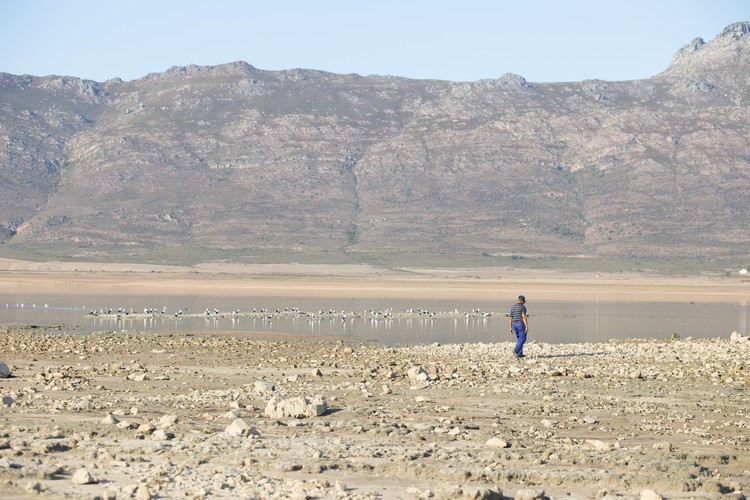

Voëlvlei Dam in May 2017. Photo: Ashraf Hendricks
26 January 2018
Do you have a water committee on your residential block? Is there a structure at your child’s school, planning for how to keep the doors open when water runs out? If you’re employed, do you have one in the building where you work?
If the answer’s no, that needs to change.
As the water crisis deepens in Cape Town, and the threat of Day Zero - a total shut-off of water across most parts of the City - becomes an increasingly likely reality, there needs to be a water committee in every single building and every single street.
A recent advisory by WWF SA on planning for Day Zero prompts the question:
“Will my office still be open?”
“…Start talking to your boss and your colleagues now: How are your premises prepared for Day Zero, and how can you work remotely, via the cloud, if not? How many people will need to stay at home because their children’s schools are closed?”
I work at Community House, a hub of unions and community organisations for many proud decades. But it was this month that we realised we didn’t have answers to these questions: we didn’t have a plan to keep Community House running without water.
A few tenants of Community House started talking about this. We realised we needed to act together, to prepare for the worst. So we started a water committee.
The committee would have two objectives: the first is to do everything in our power to reduce our collective water use now. While most people as individuals had been “doing their bit”, making a collective and coordinated response to water conservation was a long overdue step. The second objective was to plan for the likelihood of the taps running dry in less than three months: this meant setting up a toilet system that didn’t require piped water, ensuring drinking water, and taking long overdue steps to capture any rainwater that may fall on our building’s roof. (Day Zero was scheduled 12 weeks from the moment of our forming a committee; it has now been brought forward to ten weeks.)
This initiative is still in its early stages. But a few things have already become clear, which may help shape others’ efforts.
Many residents of informal settlements and townships have years of experience of a Day Zero scenario: community structures for provision of basic services are an important form of organising in such areas. It is beyond urgent that residents of affluent and well-serviced areas follow suit. In high-use, suburban areas, the biggest priority has to be cutting water usage as a whole.
We have scary months ahead. The water crisis is an environmental, economic, political and humanitarian disaster: it threatens to bring all the worst inequalities and injustices of our society to the fore. But it can also bring out the best in us: resilience, compassion and solidarity. How we act in these coming weeks and months will determine which.